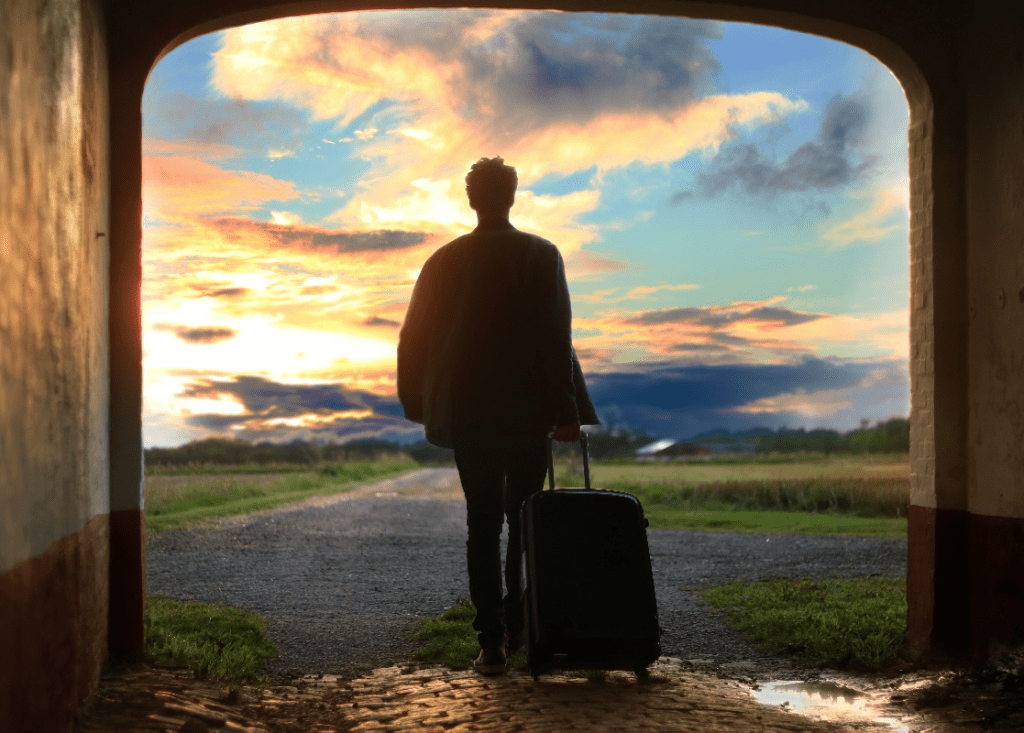Sudden Change in Sleep Schedule: How to Fix It?
Sudden change in sleep schedule is very common among people of all ages, especially those who travel frequently. The most common cause for sleep schedule changes is jet lag, which occurs when your body clock gets thrown off by traveling across multiple time zones. Other factors that contribute to sleepless nights include stress, anxiety, and medical conditions.
If you are traveling or experiencing any stress and anxiety, we’ll explain why sleep schedule is important to your body and include some tips to fix and adjust yourself.
The Importance of a Good Night’s Sleep Schedule
Sleep and wellness are highly correlated; less sleep can cause stress, anxiety, fatigue and more. As we humans are described as creatures of habit, it’s important for us to form a sleep schedule and routine so that we can cultivate a healthy sleep schedule.
By creating sleep habits can promote a good sleep schedule, meaning falling asleep quickly and staying sleep at the right time can benefit a lot on our personal health, physically and mentally.

The Importance of a Good Night’s Sleep Schedule
Sleep and wellness are highly correlated; less sleep can cause stress, anxiety, fatigue and more. As we humans are described as creatures of habit, it’s important for us to form a sleep schedule and routine so that we can cultivate a healthy sleep schedule.
By creating sleep habits can promote a good sleep schedule, meaning falling asleep quickly and staying sleep at the right time can benefit a lot on our personal health, physically and mentally.
What Causes Changes in Your Sleep Schedule?
Our body clock that controls sleep schedules is sensitive to environmental changes, such as light and change of time zones. Other common reasons for changes in your sleep schedule include stress, and anxiety.
Here are some common causes that can change your sleep schedule:
- Jet lag If you’re a traveler, you must have had this experience while you arrive in a new place that’s in a different time zone, jet lag occurs when the body’s internal clock is at odds with the day-night cycle at the travel destination.
- Shift work:You might have night shifts at work that you have to be awake when it’s night out and rest when the sun is out. This can disrupt your internal body clock as well, and it’s more common among night club staff, truckers, and nurses and so on.
- Screen light exposure: Normally, your body has been developed the ability to correspond to sunlight before electricity was invented. And it hasn’t been advanced enough to not to react to artificial lights on, such as cell phones, tablets, TVs, and computers, which can disrupt the signal that controls your sleep schedule.
- Personal choices: Sometimes, you may want to stay up late or get up early to play games, play sports, study due to approaching deadlines, these can affect your normal sleep schedules.
- Caffeine intake:If you drink coffee or tea right before bed, the stimulants may keep you alert and interfere with the body’s natural ability to balance out sleep, which in turn makes you harder to fall asleep at night.
-
Stress and anxiety:These are a huge factor as well, including depression and other emotional and mental health issues. For instance, you can get stressed out by the environment:
- Moving to a new home, school, or job
- Getting into arguments with family members or friends
- Having big tests or projects coming up
- Anything else in your life that makes you worry a lot
- Disruptive sleep hours: When you have a newborn or even a pet can disrupt your sleep hours at night because kids may ask for food and a pet, like a cat, may climb on your bed that wakes you up in the middle of the time. They can make you tired during the day by changing your normal sleep schedules.
- Chronic health problems:Studies have found that chronic health issues, like obesity, diabetes, bipolar disorder and more, can misalign your body clock and sleep schedule; it can also lead to poor sleep quality.
Learn more about causes for sleep problems:
What causes insomnia in males?
What causes insomnia in females?
When Should You Wake Up?
There’s not a specific time that you should wake up every day. What matters is you feel rested and rebooted after a night of sleep.
In general, as a healthy adult, you should get at least seven and nine hours of sleep, and it’s essential to have this sleep schedule every night.
However, if you find yourself waking up at night due to a sudden change in your sleep schedule; try to adjust your bedtime gradually. Start by going to bed earlier than usual one night, and then add 30 minutes each night until you reach your desired bedtime. If you wake up during the night, get up and go back to sleep. Don’t worry if you feel groggy the next day; your body will eventually catch up to your new sleeping pattern.
Tips for Getting Back into a Regular Sleep Schedule
As we mentioned before, humans are habit-oriented creatures so when it comes to getting back into a regular sleep schedule, making the schedule consistent should be a priority, as behaviors will become a pattern after being repeated over and over again.
Simply pick a wake-up time and sleep time to stick with, and then you should just follow this schedule day by day.
To work better, you can first focus on the wake-up time and try to get up at the exact same time every day. Then, change your sleep time, and modify the following behaviors in sleep hygiene:
1. Set an Alarm Clock.
For example, if you wake up at 5am every day, then go to bed at 11pm, you won’t be able to fall asleep until midnight. That means you’re going to stay awake until 2am, which isn’t conducive to sleeping.
To avoid this problem, set an alarm clock for the same time each night. You should also try to keep your bedroom dark and quiet. Light from outside sources can disrupt your circadian rhythm, making it harder to fall asleep.
2. Create a Bedtime Routine.
Try creating a bedtime routine that includes getting ready for bed, reading, relaxing, listening to music, take a bath, or winding down before going to sleep.
You might even consider using a white noise machine to drown out any noises outside your room.
However, avoid stimulating activities such as watching TV, playing video games, or surfing the internet before going to bed. According to UC Davis Health, the blue light from cellphones, tablets and computers signals our bodies to stay awake and not release melatonin.
Finally, try to go to bed at the same time every night.
3. Avoid Caffeine After Noon.
Avoid caffeine after noon because caffeine stimulates the nervous system and keeps us awake.
But if you drink coffee after noon, you may find yourself more tired during the evening. This is because caffeine has a diuretic effect, meaning it makes you urinate more often. So, if you drink coffee after lunch, try drinking it earlier in the day instead.
4.Don’t Stay up Late.
In addition to being bad for your body, staying up late can also affect your brain. Studies show that people who stay awake past midnight are at greater risk for developing Alzheimer’s disease later in life.
Therefore, just simply try to go to bed early. If you find yourself staying up late at night watching TV or surfing the internet, try turning off your devices before bedtime. Make sure you go to bed at a reasonable hour. Try not to fall asleep before 11pm.
5.Don’t nap too much during the day.
Sleep Society says don’t exceed 45 minutes of nap during the because it can lead to deep sleep and interfere with your normal body clock which will alternately cause you having a harder time to fall asleep at night
6.Keep your bedroom cool.
Studies find that between 60 and 67 degrees Fahrenheit is the best for people to fall asleep at night. Don’t forget to make your bed and pillow comfortable as well.
7.Do some exercise.
Exercise overall can reduce your stress, boost your mood, and eventually help you sleep better at night. But just remember to finish the exercise hours before bedtime to give your body time to cool down.
8.Don’t drink too much alcohol.
Alcohol consumption could throw off your sleep patterns. UC Davis Health says: “alcohol can help you fall asleep, but not necessarily stay asleep or sleep well.”
9.Write a sleep diary.
Like you wrote a diary when you were little, write down your sleep routine for one to two weeks (bedtime, wake time, naps, caffeine use, etc.) or with the help of a sleep tracker. The information can help you or your health provider understand patterns or behaviors of your insomnia.
10.Track your sleep at night.

Get a sleep tracker. Go2sleep could be a choice as your sleep tracker. It can track sleep data all night, provide comprehensive sleep report with accurate data. Besides, it is small and light. More importantly, it offers you the best value and Sleep Foundation named it the best value sleep tracker of 2022.
How Can You Manage Sleep Schedule When Travel?
Let’s say you’re travelling from USA to Asia, and there’s a huge time difference in these two time zones (12 to 13 hours difference), or just even travelling within two time zones, use these tips to adjust your sleep schedule:
- Change eating schedule to your destination’s time.
- Try to keep awake as much as possible. This works better especially if you travel across many time zones, keeping yourself awake during your destination’s daytime can help you adjust the time better.
- Relax. If you’re on vacation, just sleep whenever you want, it typically takes a week or so to get used to a new place’s time if you travel very far.
- Be ready for jet-leg symptoms, including daytime sleepiness, insomnia, headache and so on. Get yourself melatonin or other medications that are over the counter to ease the symptoms.
Conclusion
Keep a healthy sleep schedule is vital to your well-being, even though it may be hard, due to the change of environment, your personal choices, and disorders. This article explained why sleep schedule is important and how to fix it whether you face any issues.

In addition, if you’re struggling with changes in sleep schedule, it’s always a good idea to have a sleep tracker, like Go2Sleep, to track your sleep wherever you go so that you can understand your sleep better. With the rich data, including your heart rate, blood oxygen, AHI, HRV and convenient report exportation, you can later adjust your behaviors at ease.
References:
How to Reset Your Sleep Routine | Sleep Foundation
How to Sleep Well Despite Changes in Your Schedule | Johns Hopkins Medicine
How to Fix Your Sleep Schedule | Everyday Health
What causes insomnia in males? 5 Reasons Explained with Diagnostic Tips– Sleepon
What Causes Snoring in Female? – Sleepon
What Is Sleep Hygiene? | Sleep Foundation
COVID-19 is wrecking our sleep with coronasomnia – tips to fight back
10 common mistakes in fighting ‘coronasomnia’ — the inability to fall and stay asleep
Coronasomnia: Why You May Not Be Sleeping and What to Do About It
What causes insomnia in males? 5 Reasons Explained with Diagnostic Tips– Sleepon









